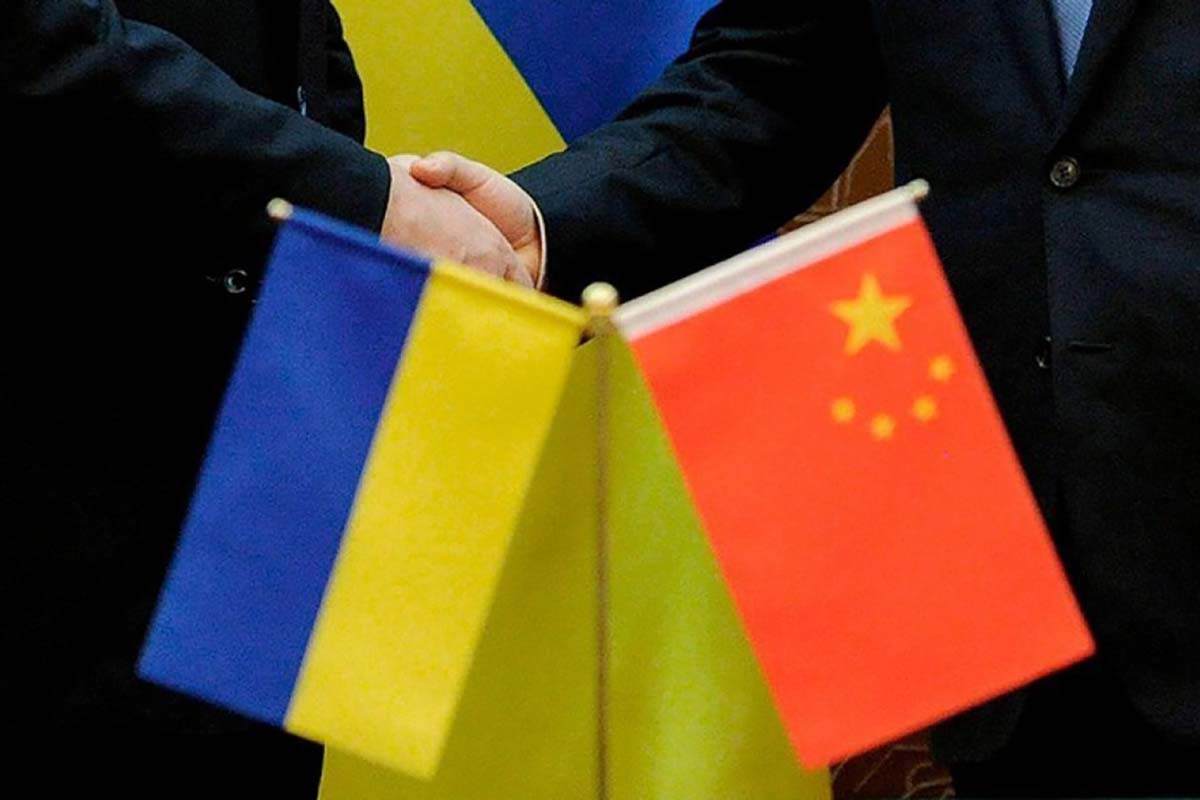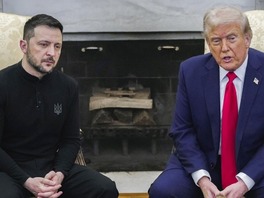Cooperation with China was among the most important priorities of Ukraine’s foreign policy since the country gained independence in 1991. Yet despite initial attempts at political discourse in the early nineties, Sino-Ukrainian cooperation remained minimal and unremarkable for a long time after those initial steps, seemingly lacking any further mutual interest and benefits. This turned around after China announced its plans for economic ventures and investments in the region via the One Belt One Road Initiative. Since then, China’s economic presence in the country has risen significantly, culminating in their interest in “Motor Sich”, which ended up sounding the alarm bells for Ukraine’s other close ally, the USA. In the wake of intensified Sino-Ukrainian bilateral relations, it has become painfully clear that Ukraine is still too inexperienced in mapping out future prospects and pitfalls in the context of a new strategic partnership, and that its interests in China are too short-sighted and lack in-depth analysis.
The roots of Ukrainian-Chinese diplomatic relations can be traced back to 1991 when the Soviet Union collapsed and Ukraine's independence was restored. China was among the first countries to recognize Ukraine's independence on December 27, 1991. On January 4, 1992, a "Communiqué on the establishment of diplomatic relations between Ukraine and China" and a "Memorandum of Understanding to the Communiqué on the establishment of diplomatic relations between Ukraine and China" were signed. These documents indicated friendly intentions of both states and were a promise of long-term cooperation back then. They constitute the basis of the current Ukrainian-Chinese partnership.
Despite Euro-Atlantic integration being a priority in Ukrainian foreign policy development, there also appeared to be potential in the active pursuit of economic cooperation between Ukraine and China. This required an intensification of both political and cultural ties between Ukraine and China, as well as an adaptation of the Ukrainian regulatory framework. Notwithstanding these obstacles, China has managed to become Ukraine's main trading partner in both import and export. In the first quarter of 2020, China’s import to Ukraine amounted to $ 1.9 billion, while export was estimated to be $ 1.2 billion, which is almost twice as much (+ 195.7%) than in the first quarter of 2019.
Formats of bilateral cooperation
The development of inter-parliamentary relations between Ukraine and China have contributed to an establishment of mutual understanding between the two states. Back in the 1990-ies the Ukrainian parliamentary group was quite active and effective, albeit small. While visiting China, the group also engaged officials from the executive branch and the regions, as well as CEOs of various companies. Their work focused on cooperation in agriculture and industry, in particular space, aviation, machinery, weaponry, and electronics. Chinese parliamentary groups also experienced a growing interest towards Ukraine, yet until 1998 relations between the two parliaments were mostly introductory and aimed at testing various forms of interaction.
In the next convocation of the Ukrainian parliament, the group on inter-parliamentary relations between China and Ukraine grew bigger. It included 39 members of the Ukrainian parliament in 1998 and was the biggest of all inter-parliamentary groups. The following year there were 43 MPs in the group, and its main points of agenda included cooperation in electronics, nuclear industry, energy, and agriculture. Over time, the group on inter-parliamentary relations between China and Ukraine continued to expand. In 2007, it surpassed a one hundred members mark. In the previous Parliament’s convocation, in 2017, there was a record high of 237 members in it.
In the current Ukrainian parliament, the group on inter-parliamentary relations between China and Ukraine has been established on March, 6th, 2020. It is co-headed by two members of parliament representing the “Servant of the People” fraction and there are so far 185 members in it. The group focuses on cooperation in industry, trade and diplomacy. At the same time, inter-parliamentary activities in general and the work of the group in particular have been affected with the consequences of the COVID-19 spread and pandemic.
There is no clear singular reason why Ukrainian members of parliament join groups on inter-parliamentary relations, including the one on Ukraine and China. Some of them may have relevant business interests to protect, while others take into account political considerations. A large quantity of members does not necessarily signify high efficiency and/or significant impact on bilateral relations. However, the volume of these groups does signal a peaked interest to the cooperating government.
The group on inter-parliamentary relations between China and Ukraine in the previous Rada has developed a complex program of strategic partnership between Ukraine and China, focused mostly on cooperation within OBOR initiative, as well as cooperation in investments, energy, IT, agriculture and transportation. The current group also underlines the notion of strategic partnership; however, the recent edition of National Security Strategy of Ukraine does not mention China among Ukraine’s strategic partners. It could be concluded, that within the parliamentary dimension bilateral relations between China and Ukraine get some additional significance and perspectives.
In July, 2016, the Committee of the Ukrainian Parliament, following the initiative of the Head of the group on inter-parliamentary relations between China and Ukraine, examined and discussed a number of issues concerning Ukraine’s participation in OBOR and formats of cooperation with the “16+1” initiative. Further on, the same issues have been again addressed by the Parliament, resulting in recommendations for the Government to take steps for Ukraine to join OBOR and look into the possibility to start negotiations for Ukraine to join “16+1” format.
An important issue within Ukrainian-Chinese trade relations was the possibility of creating a Free Trade Area between Ukraine and China, a proposal that was mainly initiated by the Chinese side. Even though, the Ukrainian government treated this request with some caution at first, First Vice Prime Minister of Ukraine Stepan Kubiv proposed the Chinese side to start joint consultations on the preconditions for the creation of a free trade zone in 2018. Back then, Stepan Kubiv highlighted that given the potential trade growth up to $ 20 billion a year in the next five years, the Ukraine-China free trade zone would bring only additional benefits for Ukrainian industry. Currently, this initiative is still stuck at the consultation stage.
Along with group on inter-parliamentary relations between China and Ukraine, there are additional formats to enhance bilateral cooperation. Among them, there is the Commission on cooperation between the Government of Ukraine and the Government of the People’s Republic of China, established in 2011. It is an expanded edition of the Intergovernmental Commission on trade and economic issues, which was functioning since 1992. The Commission covers wide range of issues and focuses on:
- Defining priority areas of cooperation;
- Coordinating projects of bilateral cooperation in trade, science, culture, agriculture, education, and space;
- Promoting activities of the legal entities in trade, energy, coal mining, science and technologies, space, agriculture, education, and culture.
The Commission, in addition to the group on inter-parliamentary relations between China and Ukraine, as well as to other channels of bilateral cooperation, provides a rather extensive infrastructure for further progress in the partnership between the two countries.
In September 2013, the Commission on Cooperation between the Government of Ukraine and the Government of the People's Republic of China held their second meeting (the first one dating from the 20th of April 2011) which significantly impacted the future of Sino-Ukrainian relations. It was established that closer intergovernmental contact would be required in order to encourage the development of economic cooperation. These intentions were finally implemented in December 2017, resulting in the Final Protocol, as well as a number of other bilateral documents:
1) The program of Ukrainian-Chinese investment cooperation in the agro-industrial complex between the Ministry of Agrarian Policy and Food of Ukraine, the Ministry of Economic Development and Trade of Ukraine, the Ministry of Agriculture of the PRC and the Ministry of Commerce of the PRC.
2) China-Ukraine Action Plan regarding the implementation of the initiative of joint construction of the "Economic Belt of the Great Silk Road" and the "Sea Silk Road of the XXI century".
3) The program of cultural cooperation between the Ministry of Culture of Ukraine and the Ministry of Culture of the People's Republic of China for 2018-2022.
4) Memorandum of Understanding in the field of the health care and medical science between the Ministry of Health of Ukraine and the National Commission of the People's Republic of China for Health and Family Planning.
5) Agreement between the Ministry of Education and Science of Ukraine and the Ministry of Education of the People's Republic of China on cooperation in the field of education.
6) Memorandum of Understanding in the fields of energy efficiency, renewable energy and alternative fuels between the State Agency for Energy Efficiency of Ukraine and the National Energy Administration of the People's Republic of China.
Despite the initial success and effectiveness of this commission, there has yet to be a date set for follow-up meeting in context of this format.
The Case of Motor Sich
The main obstacle when it comes to closer cooperation between Ukraine and China, however, can be found in the geopolitical context. This was illustrated in the, now infamous, Motor Sich case.
Motor Sich, one of the world’s largest manufacturers of engines for missiles, helicopters and jets, is a remnant of the Soviet Union. More than 50% of its shares were bought by the Chinese companies Skyrizon Aircraft and Xinwei Technology Group, 25% of the company’s shares belong Ukrainian DCH Group, and 25% of the company’s shares remain under the control of Ukroboronprom. China made its first move toward acquiring Motor Sich in 2009. Since then, several Chinese companies have attempted to buy up shares in order to gain access to the dual-use technologies that might be of critical importance to the Chinese military. Under the terms of the agreements, the Chinese investor undertook to invest $ 250 million in the company, which enabled the plant to continue operating despite Russia’s blockade on Ukrainian products, which included a ban on Motor Sich’s products.
However, the sale of the Motor Sich assets ended up causing a significant uproar within Ukraine itself, as well as in its relationship with the USA. China’s presence in Ukraine unsurprisingly threatens the US’ interests in counteracting Beijing’s increase in power and influence. Former counsel to the US Senate Foreign Relation Committee William C. Triplet criticized Ukraine for allowing Motor Sich’s military asset to fall into the hands of China. Ukrainian politician Oleg Lyashko responded to this by claiming that, if the US opposed Ukraine’s business with the Chinese, it had the responsibility to buy up more of the company’s craft engines.Additionally, the situation led to a risk of technology leakage emerged. In response to this threat, the Shevchenkivsky District Court of Kyiv, at the request of the SBU, seized 56% of shares of PJSC "Motor Sich" owned by a Chinese citizen, Skyrizon Aircraft Holdings Limited, Business House Helena AG, Enfields Trade & Capital Corp, Waldo Trade Ltd, Granum Corporation, Likatron Enterprises Limited.
It must also be mentioned that the Antimonopoly Committee of Ukraine (AMCU) has yet to issue a permit in order to legitimize the concentration of Motor Sich’s shares. The AMCU can’t annul the agreement but may impose a fine due until the actual conclusion of the agreement. According to Alexander Yarovslavsky, the president and owner of DCH Group, AMCU employees are being pressured to hold back the implementation of the Motor Sich agreements with Chinese partners and, in general, to keep the company's legal shareholders from disposing the property and corporate rights. The prosecutor's office seized the contested shares and qualified the accusation as “treason”.
Unsurprisingly, the controversial circumstances have led to an artificial limbo with regards to Motor Sich’s ownership. In 2020, however, an Sino-Ukrainian relations intensified and Chinese investors, subsequently, starting pressuring Ukraine’s financial and industrial groups more and more. Chinese company Skyrizon allied itself with the abovementioned Alexander Yarovslavsky, one of Ukraine’s wealthiest men.
Recently, in January 2021, the Shevchenkivskyi District Court of Kyiv refused to unfreeze the Chinese-owned shares in Motor Sich. Subsequently, on January 19, Yaroslavsky was summoned by the Central Investigation Department of the SSU for questioning. He is claimed to be a witness in a criminal case involving Motor Sich. The charges include article 14 “Criminal Offense Preparation,” article 111 “High Treason” and article 113 “Subversive Activity” of the Criminal Code of Ukraine. Even more worrying is the fact that the United States have recently put the Chinese company Skyrizon on a Military End-User (MEU) restrictive list.
Ukraine risks paying 3.5 billion USD in penalties to China if the situation doesn’t get resolved. The situation gets even more uncomfortable with the US standing on the other side of it, clearly voicing its disapproval. No matter what Ukraine does, it will end up negatively affecting its relations with either one or the other world power. The strategical use of Motor Sich is a vital piece to Ukraine’s own national security, something Ukraine should’ve considered before it allowed the situation to become an international diplomatic pressure point.






